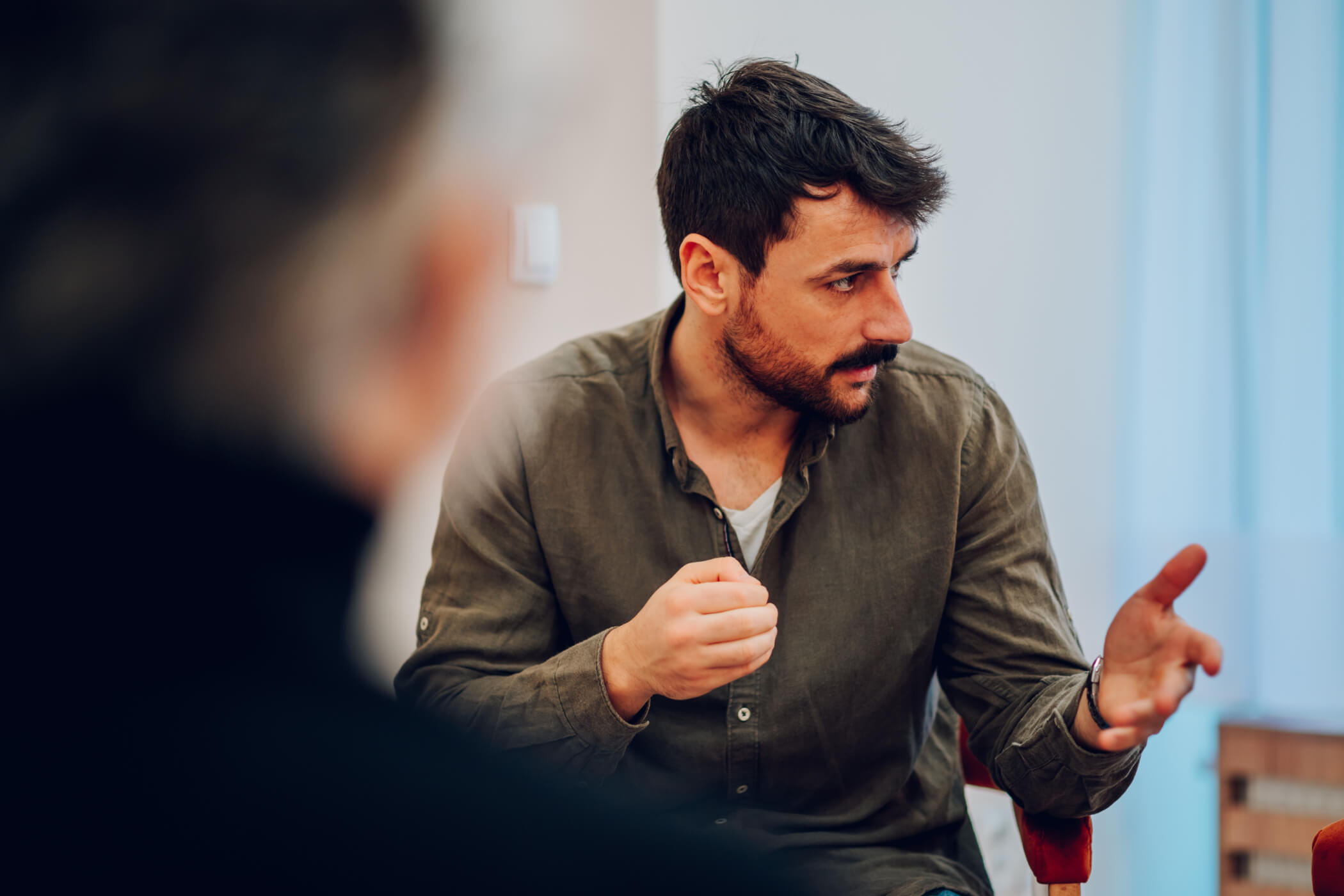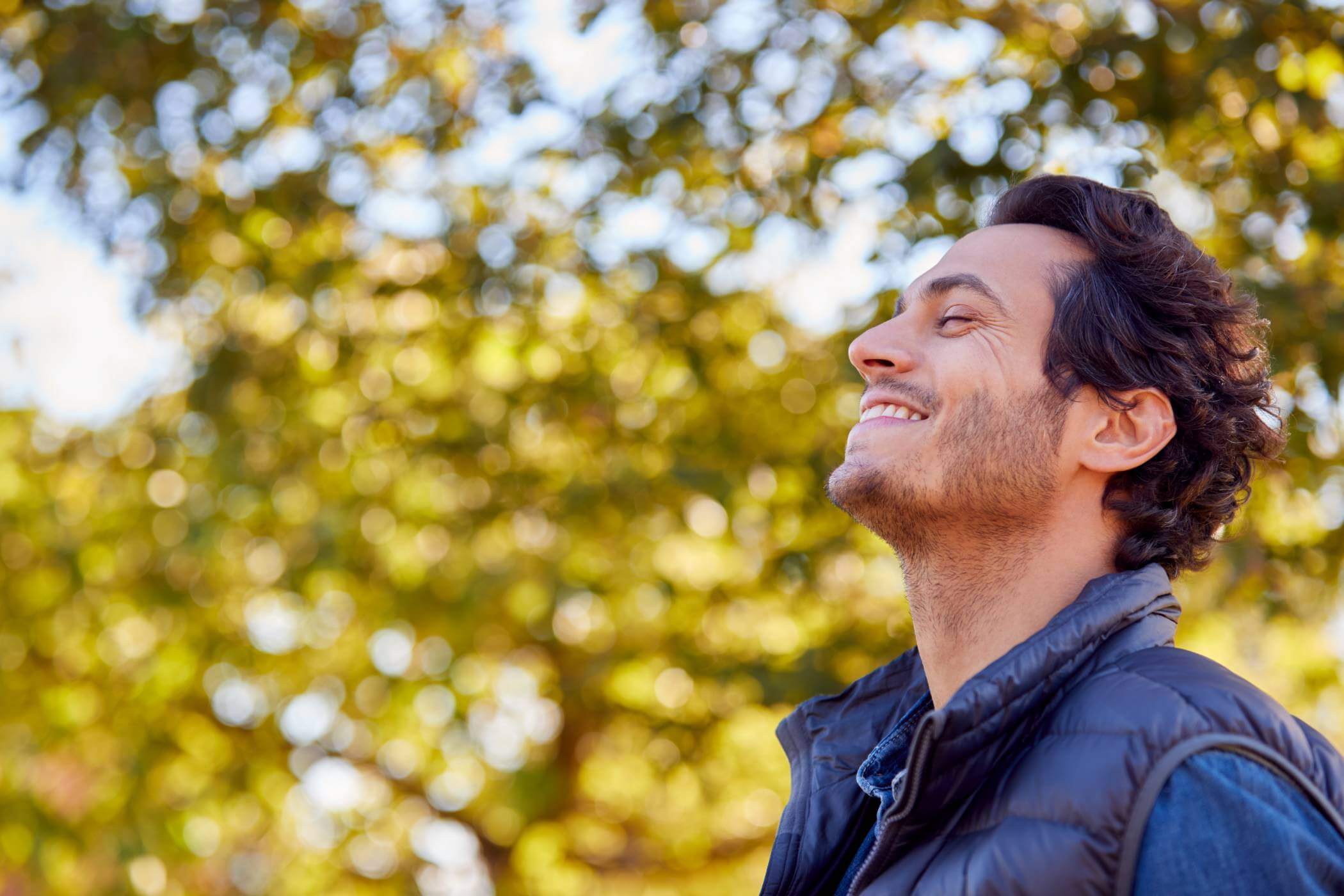Let’s be honest – life gets loud. Work pressure, family stuff, the mental weight of always having to be ‘on’… it builds. And for a lot of us men, the default coping strategy isn’t talking. It’s cracking on, pushing through, maybe zoning out with a screen or two. But here’s the thing: that doesn’t shift the pressure. It just buries it.
Sometimes, I don’t realise how much I need nature until life forces me to slow down. Recently, I found myself in the Peak District with a group of men, lacing up my boots and heading out for a hike, with a sense that I needed space. When I got home, it had changed something. Not in a big dramatic way. But the noise in my head dialled down. My shoulders dropped. I felt more… like me.
Being out in nature grounds me – whether I’m paddleboarding on quiet lakes; wild swimming in icy rivers, or just sitting in the woods with no phone. It’s not about having a hobby – it’s just something that keeps me grounded.
- Nature Doesn’t Ask You To Perform
- Your Nervous System Loves The Outdoors
- You Don’t Need To Be ‘Outdoorsy’ To Start
- Why I Offer Walk And Talk Therapy
- Stillness Isn’t Weakness
- Nature Won’t Fix Everything – But It Will Help You Feel Again
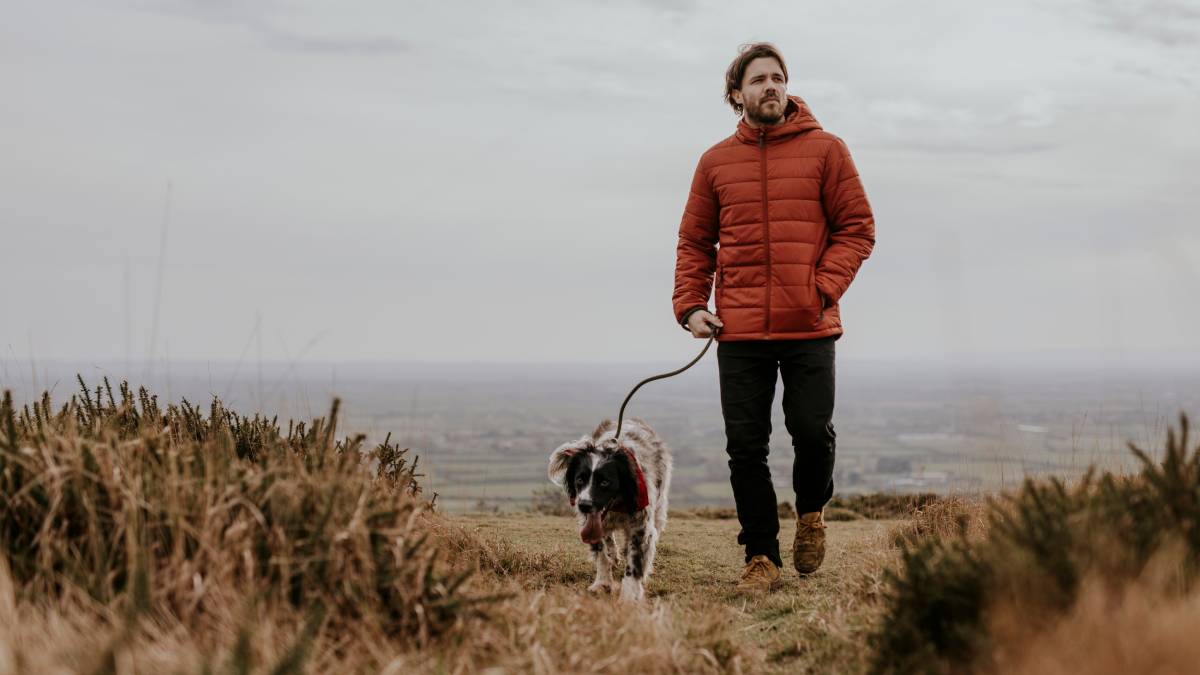
Nature Doesn’t Ask You To Perform
The world asks a lot of men: be strong, provide and don’t show too much emotion. Nature doesn’t care about any of that. Trees don’t need you to be tough. Rivers don’t ask you to hustle. Mountains couldn’t give a monkeys how many hours you’ve worked this week.
There’s something freeing about that. When you’re out in the wild – no signal, no traffic, no to-do list – you get to drop the armour. You’re just a man in nature, breathing, moving, feeling – and that alone can be healing!
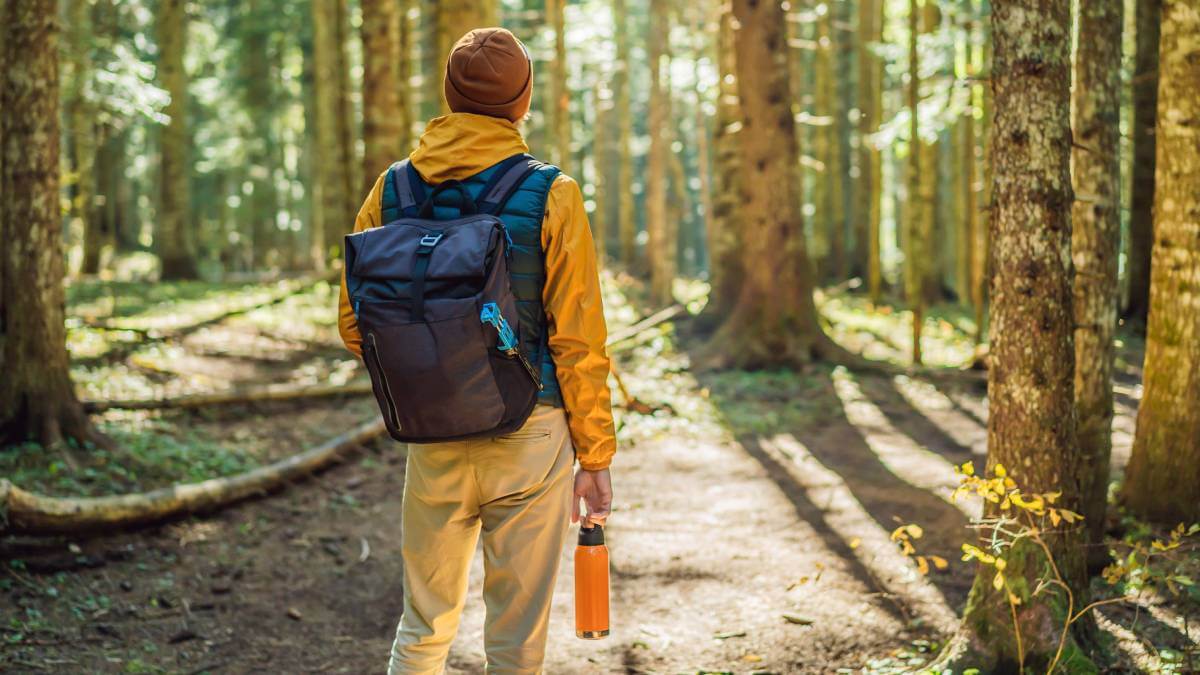
Your Nervous System Loves The Outdoors
You don’t need to know the science to feel it – but it’s there. Being in nature calms your nervous system. It helps regulate stress. The rhythms of walking, paddling, or even just sitting by a tree work with your body to shift it out of “fight or flight” and into something calmer.
Cold water? It’s a game changer. I’ve been wild swimming for a while now, and yes, it’s uncomfortable at first – but it wakes you up in the best way. It shocks you into presence. You’re not thinking about work when you’re waist-deep in a freezing river. You’re in your body. Alive.
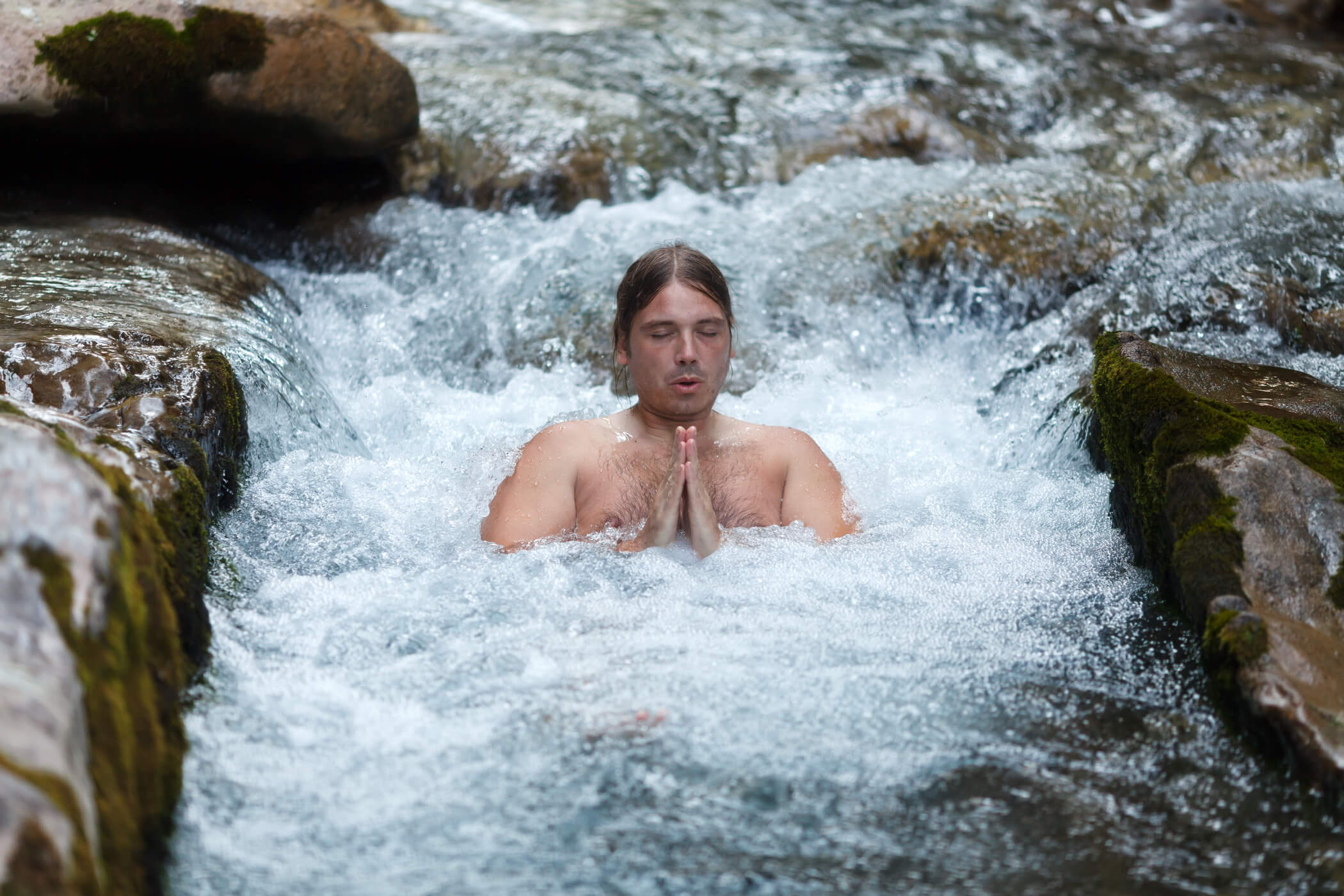
You Don’t Need To Be ‘Outdoorsy’ To Start
You don’t have to hike up Scafell Pike or buy the latest gear to feel the benefits. Start simple: A short walk in the local woods; five minutes by water or taking your morning coffee outside and actually noticing the sky and the sound of the birds or the breeze – it all counts.
If you’re not sure where to start, here are a few ideas:
• Walk with purpose – or none at all. You can set a destination or just let yourself wander. Either way, try leaving your phone in your pocket. The world won’t end.
• Try a cold water dip. No need to swim laps. Just getting into the water for a couple of minutes does the trick. Start slow. Respect the safety side. But feel what happens after – your mood, your focus, your body.
• Find a tribe. Join a local walking group or check out local communities. Being around other blokes who get it – without needing to say much – can be powerful.
• Use your senses. Next time you’re outdoors, stop and ask yourself: What can I hear? What can I smell? What can I feel? It’s not about being spiritual – it’s about anchoring yourself in the now.
• Turn nature into a habit. Book it in like any other appointment. Even ten minutes of fresh air on your lunch break can shift your whole afternoon.
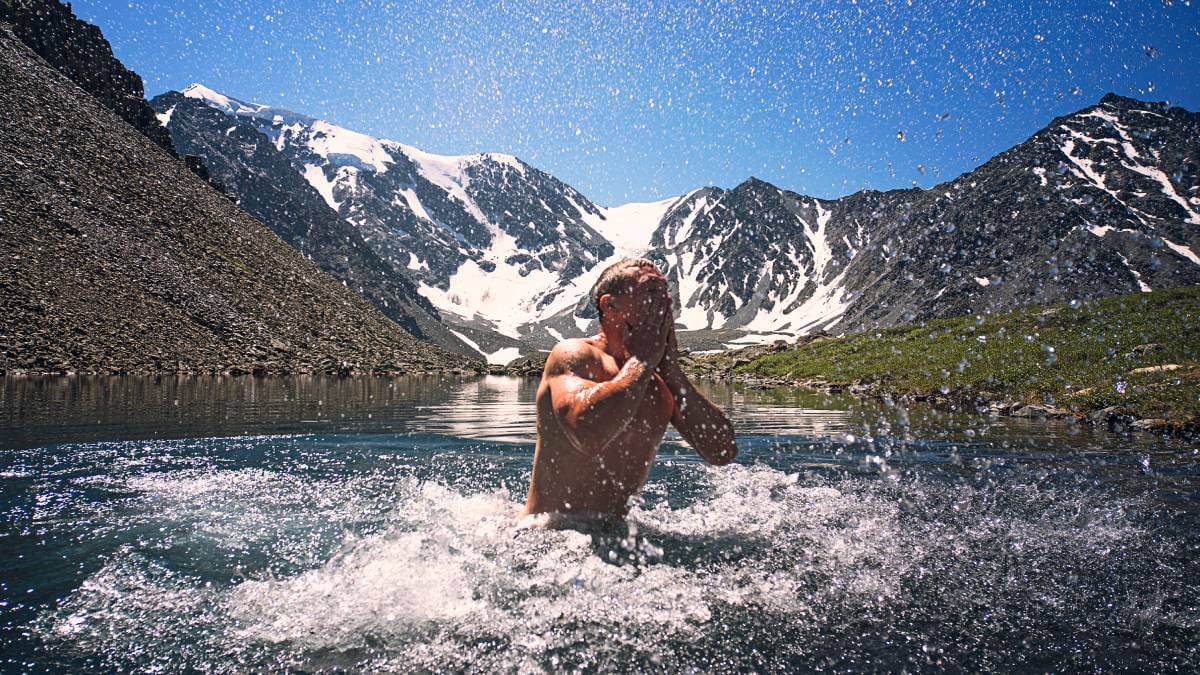
Why I Offer Walk And Talk Therapy
Knowing the impact nature has on me, it made total sense to bring it into my work with men. That’s why I offer Walk and Talk Therapy. For a lot of men, sitting in a room across from someone isn’t the easiest way to open up. But walking side by side, with trees around you and your feet moving – something shifts: The pressure eases; the conversation flows and you don’t feel like you’re under a microscope.
It’s not just about getting fresh air. It’s about giving your thoughts space to breathe; letting your body move while your mind unravels some of what you’ve been carrying. I’ve seen men say things they didn’t know they needed to say – not because they were pushed, but because the environment made it easier.

Stillness Isn’t Weakness
A lot of us are taught to keep moving. To stay productive. But stillness – sitting on a rock watching the wind move the trees – that’s not laziness. That’s presence. That’s where your body has space to process the stuff you’ve been carrying. You might not realise how much you’ve been carrying until you give it space.
Some of my most honest moments – the ones where I’ve felt anger, grief, even joy I didn’t know was there – have happened while I’ve been out on the trail or floating on a board in the middle of a lake. No distractions. Just me and what’s real.
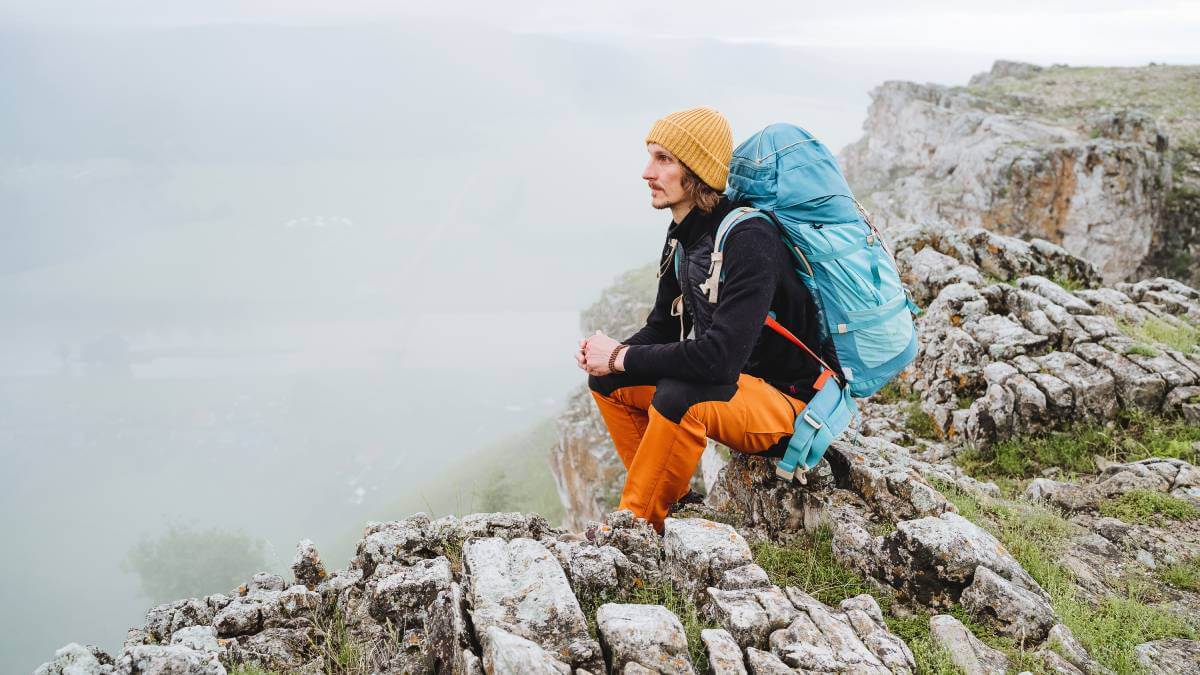
Nature Won’t Fix everything – But It Will Help You Feel Again
Let’s be clear: heading into the hills won’t solve every problem. But it helps. It helps you slow down, tune in, and reset. It gives you enough breathing space to figure out what you actually feel – not just what you’re meant to feel.
That’s where change starts: Not in the big, life-altering epiphanies; but in the small, grounded moments when you remember who you are.
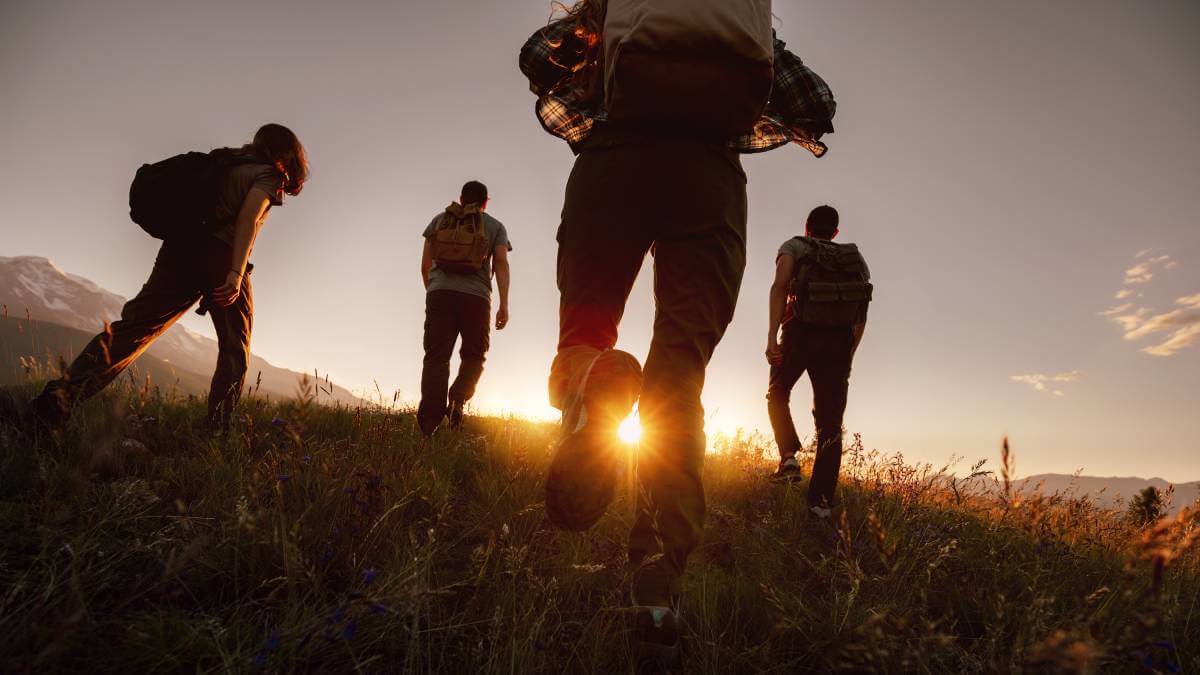
Final Thought: Don’t Wait Until You’re Burnt Out
You don’t have to hit rock bottom to start making time for yourself. You don’t need to be broken to need nature. If you’re reading this and something in you is tired, fed up, or just quietly asking for more – listen.
Take that walk. Brave the water. Lie under the sky. You might be surprised what starts to shift!
Article by Stephen Hall, LADZ Partner and Psychotherapist. Connect with Stephen through the LADZ app.



